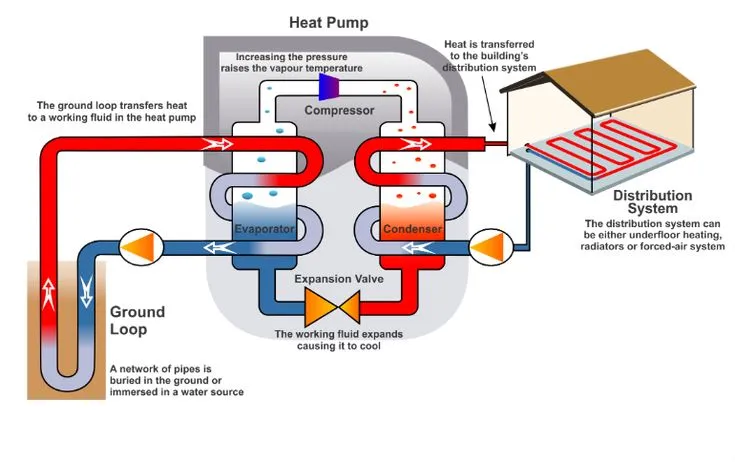Fan
The outdoor unit contains a fan that blows air over the condenser coil, facilitating heat transfer.
Compressor
The absorbed heat causes the refrigerant liquid to evaporate into a low-pressure gas inside the outdoor unit of the heat pump. The compressor within the heat pump then compresses the gaseous refrigerant, raising it's temperature and pressure.
Refrigerant Lines
The warmed indoor air is distributed throughout the building via a forced-air system, ductwork, or radiant heating, providing warmth to the living spaces.

